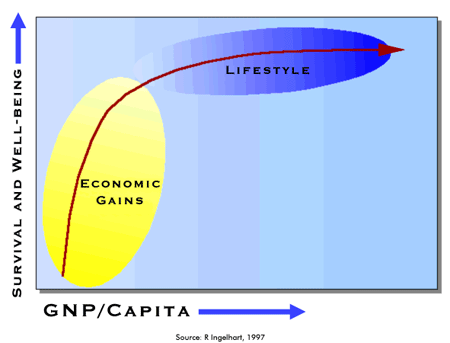Found via Michael Tobis’ blog: From “know how” to “do now”, an excellent speech by Herman Daly (full text available here), on the interplay between climate science, economics and policy. Take home message: We know enough to start doing something about the problem. My addition: Any realistic change in our knowledge is not going to affect that conclusion.
“Can we systematically continue to emit increasing amounts of CO2 and other greenhouse gasses into the atmosphere without eventually provoking unacceptable climate changes? Scientists will overwhelmingly agree that the answer is no. The basic science, first principles, and directions of causality are very clear. Arrhenius discovered the basics a century ago. Focusing on them creates a world of relative certainty, at least as to the thrust and direction of policy.”
Just in case you think that this main thrust is not at all certain; it is. The rates, the exact magnitude and exact consequences, the details, are uncertain, and as such are being investigated by scientists. But there’s no way that more greenhouse gases would not lead to a warming. Even a serious “skeptical” position would not change this main thrust; it would merely change the timing of “eventually”. If we burn all currently recoverable fossil fuels (dominated by coal), CO2 levels will not be double pre-industrial, but more like quadruple. (pre-industrial CO2 concentration is 280 ppm; current levels are 385 ppm.) Even with a wholly unrealistic, low climate sensitivity of 1 degree warming per doubling of CO2, put forward by die-hard “skeptics” like Lindzen, this is a recipe for disaster: The Greenland and West Antarctic ice sheets are not likely stable in the long run at 4 degrees higher temperatures than pre-industrial. Mind you, I write “in the long run”. The main uncertainty is in the rate, not in the eventual fate at such high temperatures.
If it’s bad, it’s really bad. If it’s good, it’s still pretty bad.
Energy policy & economics
To come back to Herman Daly, he suggests that our energy policy should focus on “a sustainable aggregate level of energy consumption” rather than on “efficient patterns of consumption”. Increases in efficiency are over time often (more than) counterbalanced by increases in consumption (the rebound or Jevons effect). Daly goes on to say that “GDP growth at the current margin in the US is in fact uneconomic growth—that is, growth that increases social and environmental costs faster than it increases production benefits”. I have no relevant expertise to comment on that claim, but the notion that it’s better “to stop uneconomic growth and free up resources and ecological space for truly economic growth by the poor” makes certain sense, though it’s politically a hard sell, and it runs counter to how we’ve got used to think about economics. Moreover, “beyond a threshold of absolute income already passed in the West, welfare or self-evaluated happiness becomes a function of relative income rather than absolute income.” This is confirmed e.g. here:
The solution? “Tax bads (depletion and pollution), not goods (income).” I.e. shift taxes from human capital to natural resources.
“To continue business as usual while debating the predictions of complex models in a world made even more uncertain by the questions we ask, is to fail to pull the parachutes’ ripcord. The empirical consequences of this last failure, unfortunately, are all too certain.”
Tags: climate change, ecological economics, Energy policy, Herman Daly

November 4, 2012 at 20:29
This global warming argument for economic change, (i.e., away from growth) makes good sense to me and I have no formal training in economics or in climate science. Also it is only one of many arguments in favour of changing away from growth forever, with some of the other arguments based on: loss of biodiversity, pollution of soils and water (as well as air), and depletion of non-renewable resources. Kudos to Professor Daly and all who are writing to explain why we need to overhaul our economic system. The very simple change in taxation proposed in the blog (see above) is an elegant solution but the implementation of it will be exceedingly difficult. The more people that understand this situation, the faster we can make change happen, hopefully before it is too late. GG
January 21, 2014 at 06:43
[…] Herman Daly said it as follows, in a quote I’ve used regularly over the past few years: […]